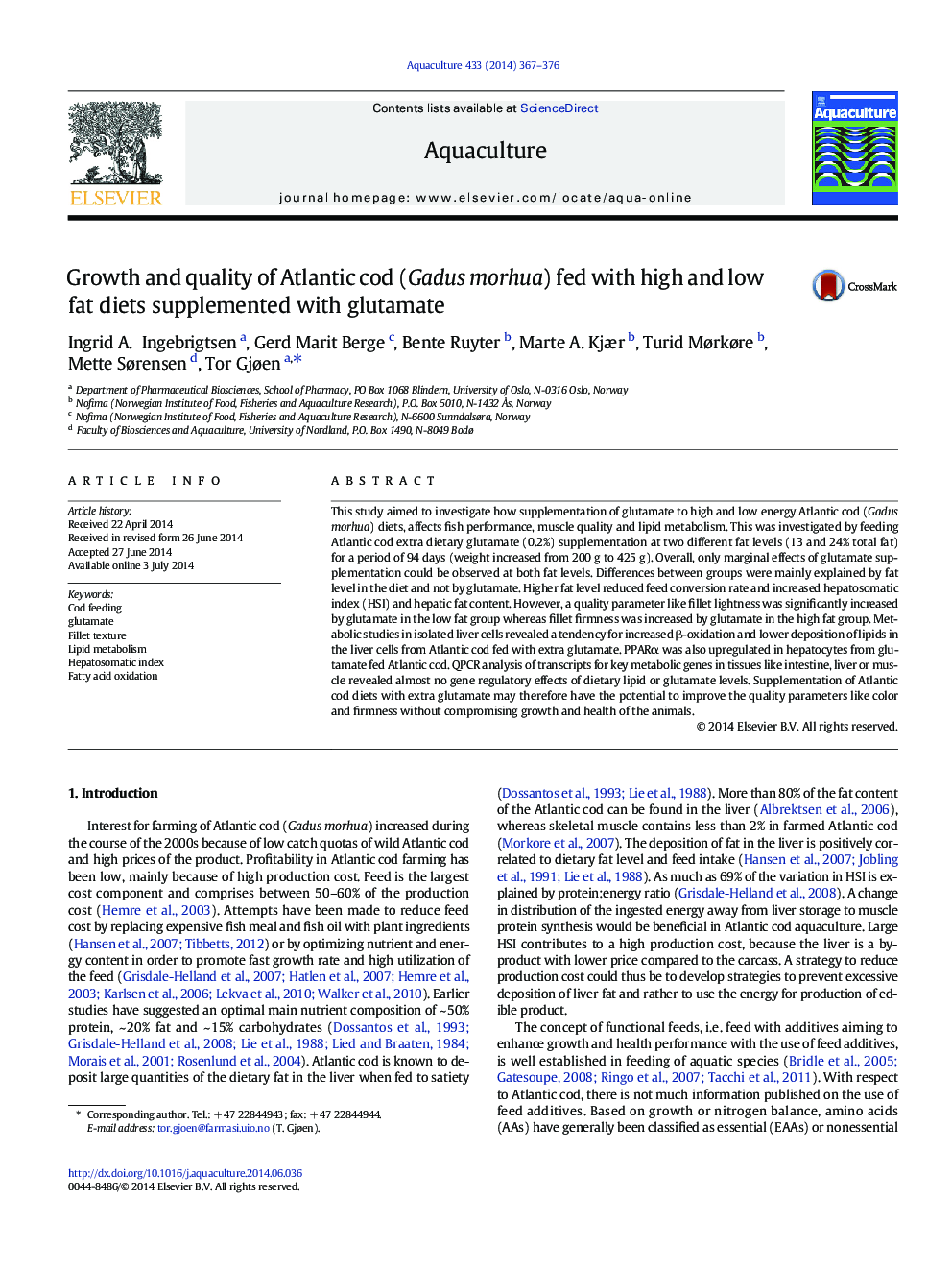| Article ID | Journal | Published Year | Pages | File Type |
|---|---|---|---|---|
| 2421887 | Aquaculture | 2014 | 10 Pages |
•Atlantic cod were fed at two dietary energy levels +/- additional glutamate•Analysis of feed utilization, growth, HSI, product quality and lipid metabolism•Dietary glutamate did not improove growth or hepatosomatic index in cod•Dietary glutamate had a positive effect on fillet firmness in atlantic cod•Dietary glutamate tend to increase hepatic fatty acid oxidation
This study aimed to investigate how supplementation of glutamate to high and low energy Atlantic cod (Gadus morhua) diets, affects fish performance, muscle quality and lipid metabolism. This was investigated by feeding Atlantic cod extra dietary glutamate (0.2%) supplementation at two different fat levels (13 and 24% total fat) for a period of 94 days (weight increased from 200 g to 425 g). Overall, only marginal effects of glutamate supplementation could be observed at both fat levels. Differences between groups were mainly explained by fat level in the diet and not by glutamate. Higher fat level reduced feed conversion rate and increased hepatosomatic index (HSI) and hepatic fat content. However, a quality parameter like fillet lightness was significantly increased by glutamate in the low fat group whereas fillet firmness was increased by glutamate in the high fat group. Metabolic studies in isolated liver cells revealed a tendency for increased β-oxidation and lower deposition of lipids in the liver cells from Atlantic cod fed with extra glutamate. PPARα was also upregulated in hepatocytes from glutamate fed Atlantic cod. QPCR analysis of transcripts for key metabolic genes in tissues like intestine, liver or muscle revealed almost no gene regulatory effects of dietary lipid or glutamate levels. Supplementation of Atlantic cod diets with extra glutamate may therefore have the potential to improve the quality parameters like color and firmness without compromising growth and health of the animals.
